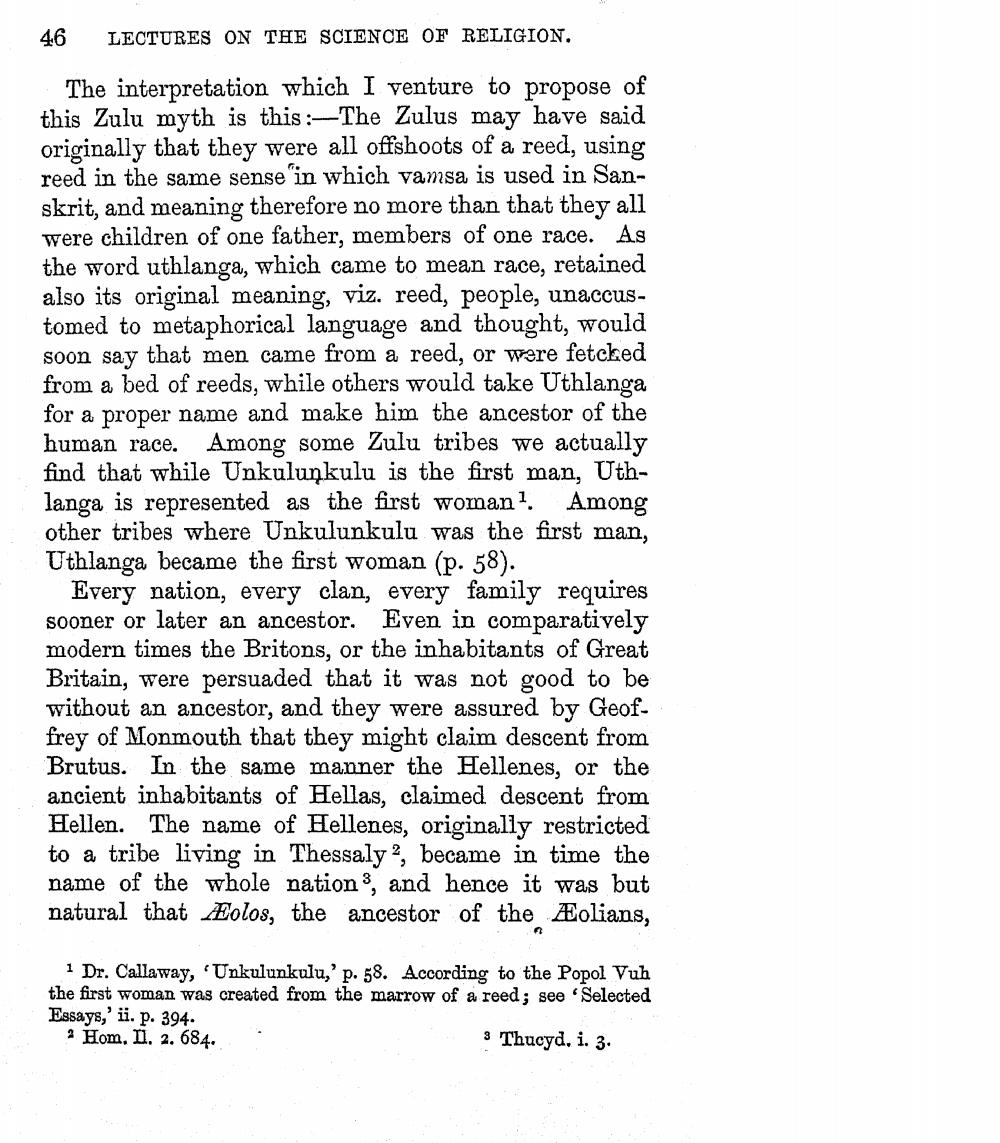________________
46
LECTURES ON THE SCIENCE OF RELIGION.
The interpretation which I venture to propose of this Zulu myth is this:- The Zulus may have said originally that they were all offshoots of a reed, using reed in the same sensein which vamsa is used in Sanskrit, and meaning therefore no more than that they all were children of one father, members of one race. As the word uthlanga, which came to mean race, retained also its original meaning, viz. reed, people, unaccustomed to metaphorical language and thought, would soon say that men came from a reed, or were fetched from a bed of reeds, while others would take Uthlanga for a proper name and make him the ancestor of the human race. Among some Zulu tribes we actually find that while Unkulunkulu is the first man, Uthlanga is represented as the first woman1. Among other tribes where Unkulunkulu was the first man, Uthlanga became the first woman (p. 58).
Every nation, every clan, every family requires sooner or later an ancestor. Even in comparatively modern times the Britons, or the inhabitants of Great Britain, were persuaded that it was not good to be without an ancestor, and they were assured by Geoffrey of Monmouth that they might claim descent from Brutus. In the same manner the Hellenes, or the ancient inhabitants of Hellas, claimed descent from Hellen. The name of Hellenes, originally restricted to a tribe living in Thessaly 2, became in time the name of the whole nation, and hence it was but natural that Æolos, the ancestor of the Æolians,
1 Dr. Callaway, 'Unkulunkulu,' p. 58. According to the Popol Vuh the first woman was created from the marrow of a reed; see Selected Essays,' ii. p. 394. Hom. II. 2. 684.
3 Thucyd, i. 3.




